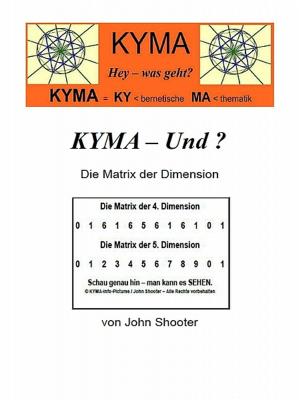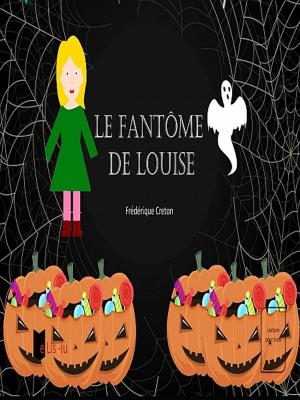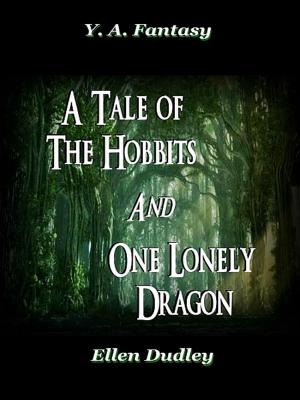| Author: | R. Jonnavittula | ISBN: | 9783960283751 |
| Publisher: | XinXii-GD Publishing | Publication: | February 1, 2016 |
| Imprint: | Language: | English |
| Author: | R. Jonnavittula |
| ISBN: | 9783960283751 |
| Publisher: | XinXii-GD Publishing |
| Publication: | February 1, 2016 |
| Imprint: | |
| Language: | English |
This is not a book on astrology; it is fiction. It is also a pseudo research.
Nirmal felt that Vedic Astrology was only a first approximation and that it needed reform based on research. He also felt that a life of a person was influenced by the close relatives who lived with the person; he deduced that the destiny of a person may be changed by introducing a close relative into the family or by eliminating an existing close relative in the family.
Nirmal saw a vision of a batch of students on their way to attend interviews for selection into some courses of study. He was surprised to hear Visal tell him that the events in the first portion of his vision came true. Visal was afraid that the events in the remaining portion of Nirmal’s vision which involved separation of the nascent couple, might also come true and requested Nirmal to prevent that from happening. He successfully introduced a child into the family and saved the marriage.
Ananda Nilayam was a small hotel run by Seenayya and his daughter Kesamma. It was situated midway on a hill Sreegiri, on whose top a temple was situated. Both under the displayed price list and on the bills issued to the customers for payment, the following line was included. “Patrons may pay what they consider reasonable for our services.” A businessman Murthy who spent a weekend tested and found that they meant what they declared.
Murthy, his wife Lalitha and Nirmal were their frequent customers. In the beginning Murthy and Lalitha were close to each other. Because of his childhood experiences, he constantly feared that he might be reduced to the state of penury he suffered as a child; this turned him into a workaholic. He loved his wife ardently but was unable to express or display his love. Lalitha was unable to understand his love and, after a time, felt bored and frustrated with life. In a strange circumstance, she eloped with Naresh, son of Kesamma; they also had a baby girl. Frightened by the prospect of providing for the family, he committed suicide. Lalitha also planned to commit suicide after leaving the baby to the care of the God at the temple.
When Murthy came to know that Lalitha deserted him, he slipped out of the hotel at the dead of the night, went up the hill to a solitary place, and tried to kill himself; a prank of a monkey on the tree saved his life.
Nirmal happened to meet Lalitha just as she left the baby on a bench and was trying to go. He succeeded in stopping her.
He went to Murthy to ascertain his present attitude towards Lalitha; he considered himself to be responsible for her deserting him; he continued to love her ardently. Nirmal restored the mother and the baby to Murthy.
The news of Naresh’s death was kept concealed from others by Nirmal. Seenayya became old; to provide a support for Kesamma they try to get her married to Mallanna who almost consents. That night Nirmal had a vision where he saw an old Kesamma and a new ‘Star Ananda Nilayam’. He hoped and prayed that the vision might come true.
As I mentioned, it is also a research into a peripheral issue one is forced to satisfy himself with, when the research involves dedicated workers across many generations; this researcher hopes that his attempt would induce others to delve deeper into the problem. The novel is essentially intended for youth maturing into responsible adulthood to strengthen his faith in himself and to encourage him to face and solve issues and problems with hope and confidence.
This is not a book on astrology; it is fiction. It is also a pseudo research.
Nirmal felt that Vedic Astrology was only a first approximation and that it needed reform based on research. He also felt that a life of a person was influenced by the close relatives who lived with the person; he deduced that the destiny of a person may be changed by introducing a close relative into the family or by eliminating an existing close relative in the family.
Nirmal saw a vision of a batch of students on their way to attend interviews for selection into some courses of study. He was surprised to hear Visal tell him that the events in the first portion of his vision came true. Visal was afraid that the events in the remaining portion of Nirmal’s vision which involved separation of the nascent couple, might also come true and requested Nirmal to prevent that from happening. He successfully introduced a child into the family and saved the marriage.
Ananda Nilayam was a small hotel run by Seenayya and his daughter Kesamma. It was situated midway on a hill Sreegiri, on whose top a temple was situated. Both under the displayed price list and on the bills issued to the customers for payment, the following line was included. “Patrons may pay what they consider reasonable for our services.” A businessman Murthy who spent a weekend tested and found that they meant what they declared.
Murthy, his wife Lalitha and Nirmal were their frequent customers. In the beginning Murthy and Lalitha were close to each other. Because of his childhood experiences, he constantly feared that he might be reduced to the state of penury he suffered as a child; this turned him into a workaholic. He loved his wife ardently but was unable to express or display his love. Lalitha was unable to understand his love and, after a time, felt bored and frustrated with life. In a strange circumstance, she eloped with Naresh, son of Kesamma; they also had a baby girl. Frightened by the prospect of providing for the family, he committed suicide. Lalitha also planned to commit suicide after leaving the baby to the care of the God at the temple.
When Murthy came to know that Lalitha deserted him, he slipped out of the hotel at the dead of the night, went up the hill to a solitary place, and tried to kill himself; a prank of a monkey on the tree saved his life.
Nirmal happened to meet Lalitha just as she left the baby on a bench and was trying to go. He succeeded in stopping her.
He went to Murthy to ascertain his present attitude towards Lalitha; he considered himself to be responsible for her deserting him; he continued to love her ardently. Nirmal restored the mother and the baby to Murthy.
The news of Naresh’s death was kept concealed from others by Nirmal. Seenayya became old; to provide a support for Kesamma they try to get her married to Mallanna who almost consents. That night Nirmal had a vision where he saw an old Kesamma and a new ‘Star Ananda Nilayam’. He hoped and prayed that the vision might come true.
As I mentioned, it is also a research into a peripheral issue one is forced to satisfy himself with, when the research involves dedicated workers across many generations; this researcher hopes that his attempt would induce others to delve deeper into the problem. The novel is essentially intended for youth maturing into responsible adulthood to strengthen his faith in himself and to encourage him to face and solve issues and problems with hope and confidence.















